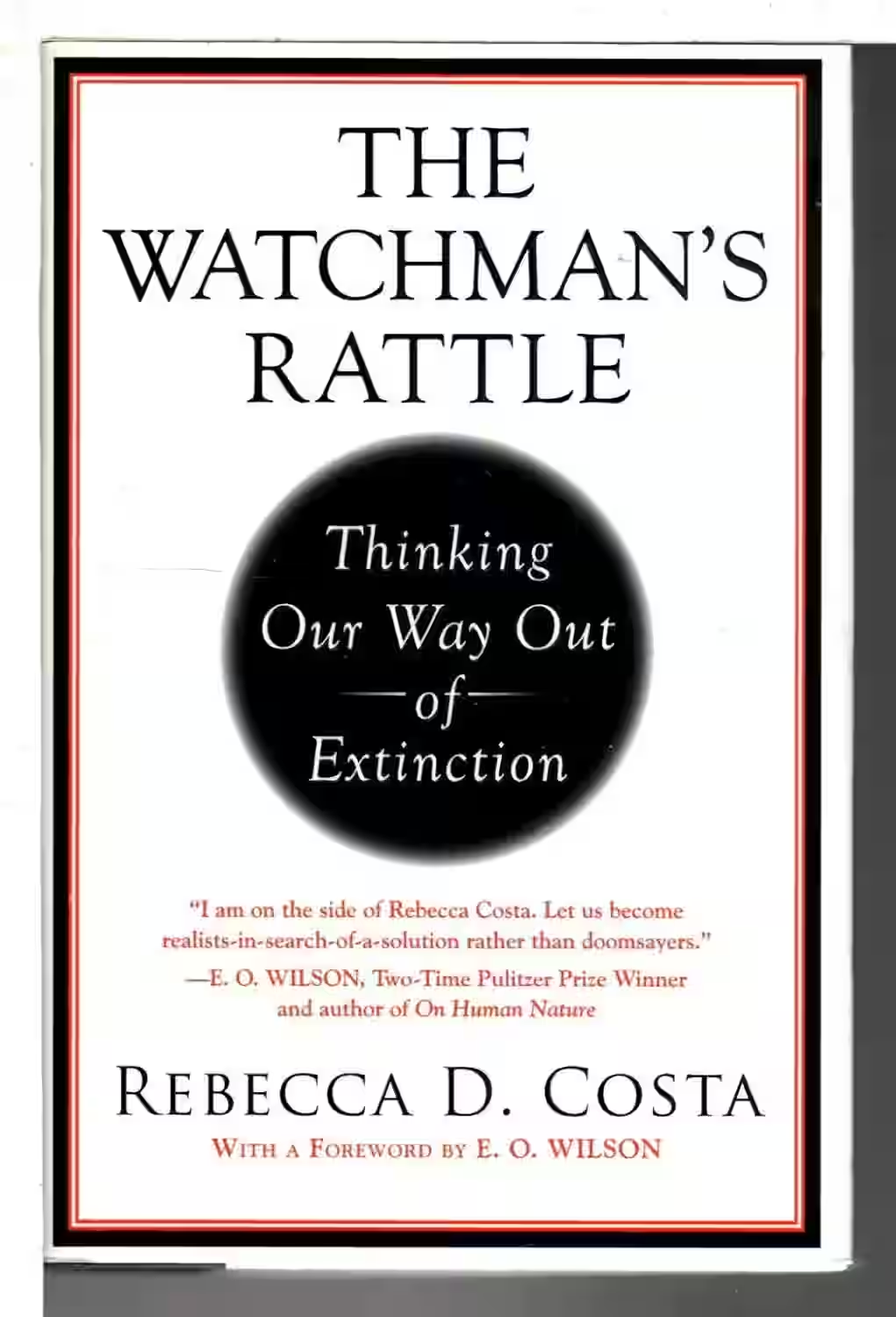
Rebecca Costa’s The Watchman’s Rattle explores how civilizations collapse when complexity outpaces our ability to solve problems. Blending science, history, and psychology, she argues that as global crises become more complex, society risks paralysis unless we evolve our cognitive strategies. Costa introduces the idea of “cognitive threshold,” suggesting we must adopt new ways of thinking—such as intuition and pattern recognition—to survive modern challenges. The book links ancient failures with contemporary threats like climate change and global instability. It’s a call to embrace adaptive thinking before our most pressing problems become unsolvable.
About Rebecca Costa
Rebecca Costa is an American sociobiologist, futurist, and author known for her interdisciplinary approach to global issues. In The Watchman’s Rattle, she explores how civilizations fail when complexity overwhelms human decision-making capacity. With a background in technology and science, Costa blends evolutionary biology with behavioral economics to identify solutions for modern crises. Her work emphasizes the need for new cognitive strategies—like intuition and pattern recognition—to address societal breakdowns. Costa is a frequent speaker and commentator on systems thinking, risk, and innovation. Her writing aims to awaken a deeper awareness of how we confront increasingly complex global challenges.
Similar Books
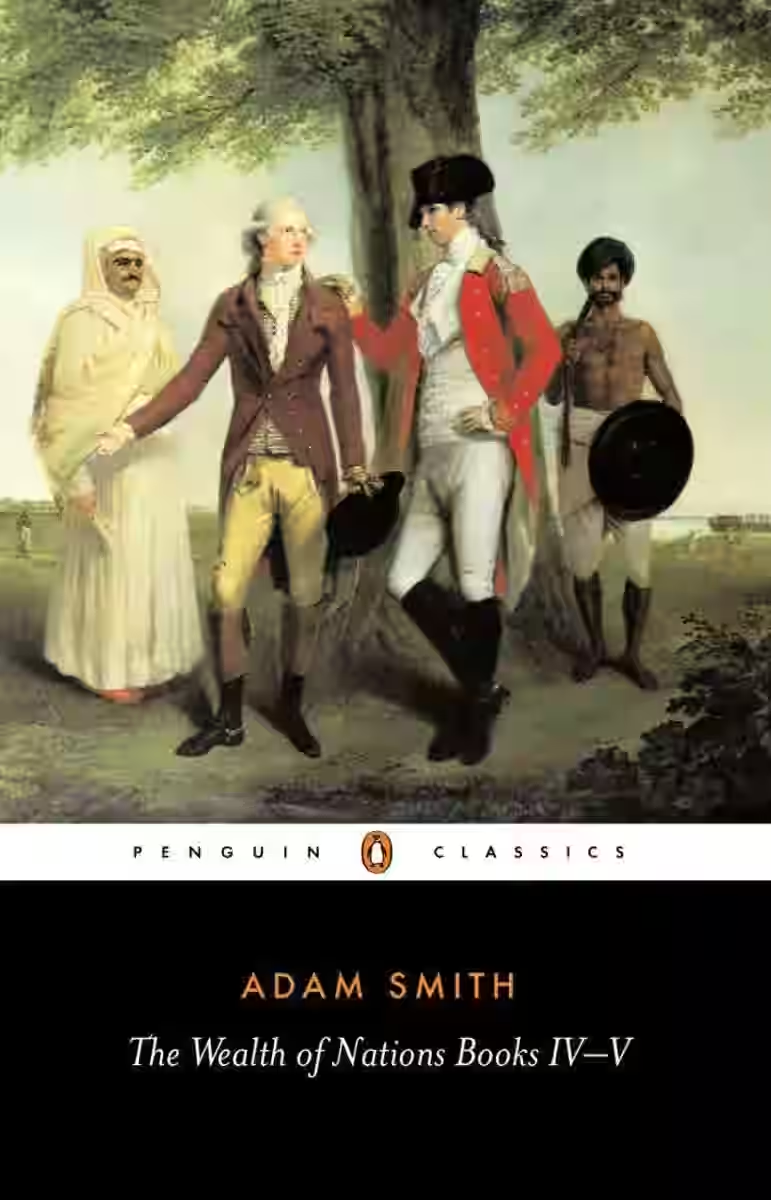
The Wealth of Nations: Books IV-V
by Adam Smith
Series: The Wealth of Nations (#2)
Books IV–V of The Wealth of Nations critique existing economic policies and propose a framework for limited but essential government intervention. In Book IV, Smith dissects the mercantile system, rejecting trade restrictions and monopolies while advocating for free trade. He critiques colonialism and tariffs, favoring open markets. Book V addresses the role of the state in education, justice, defense, and infrastructure—functions Smith sees as necessary for a stable, prosperous society. These volumes balance his case for laissez-faire economics with the need for public investment, rounding out his vision of a functional, ethical, and productive political economy.
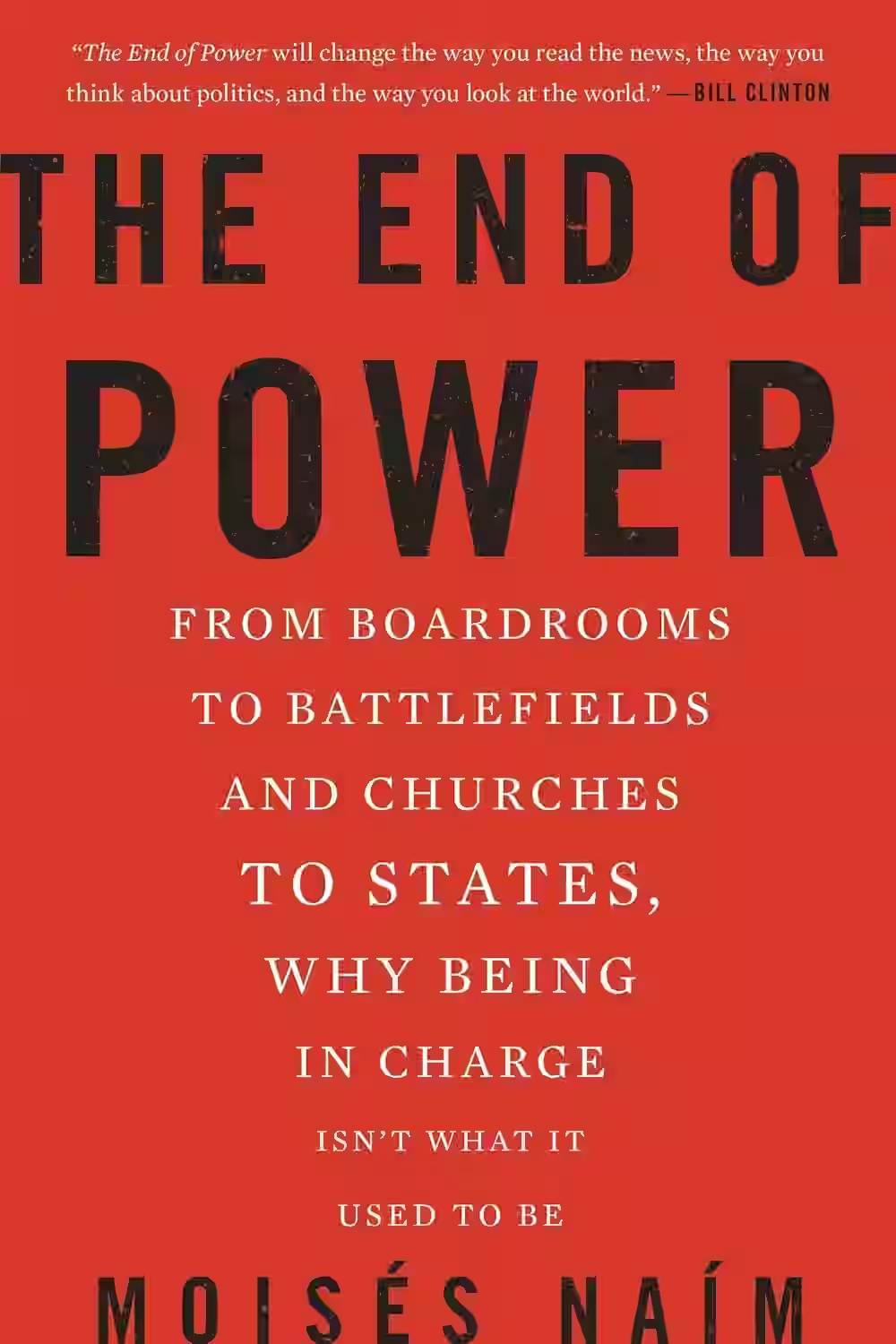
The End of Power
by Moisés Naím
Naím explores a global shift in how power is acquired, wielded, and lost. He argues that power is becoming more widespread but harder to maintain, as traditional institutions lose influence to smaller players and individuals. Through examples in politics, business, military, and religion, Naím shows how the erosion of hierarchy and the democratization of influence are reshaping society. This book challenges assumptions about leadership and authority in the 21st century. As the inaugural selection for Mark Zuckerberg’s book club, The End of Power offers a thought-provoking look at the fragmentation and volatility of modern power structures.
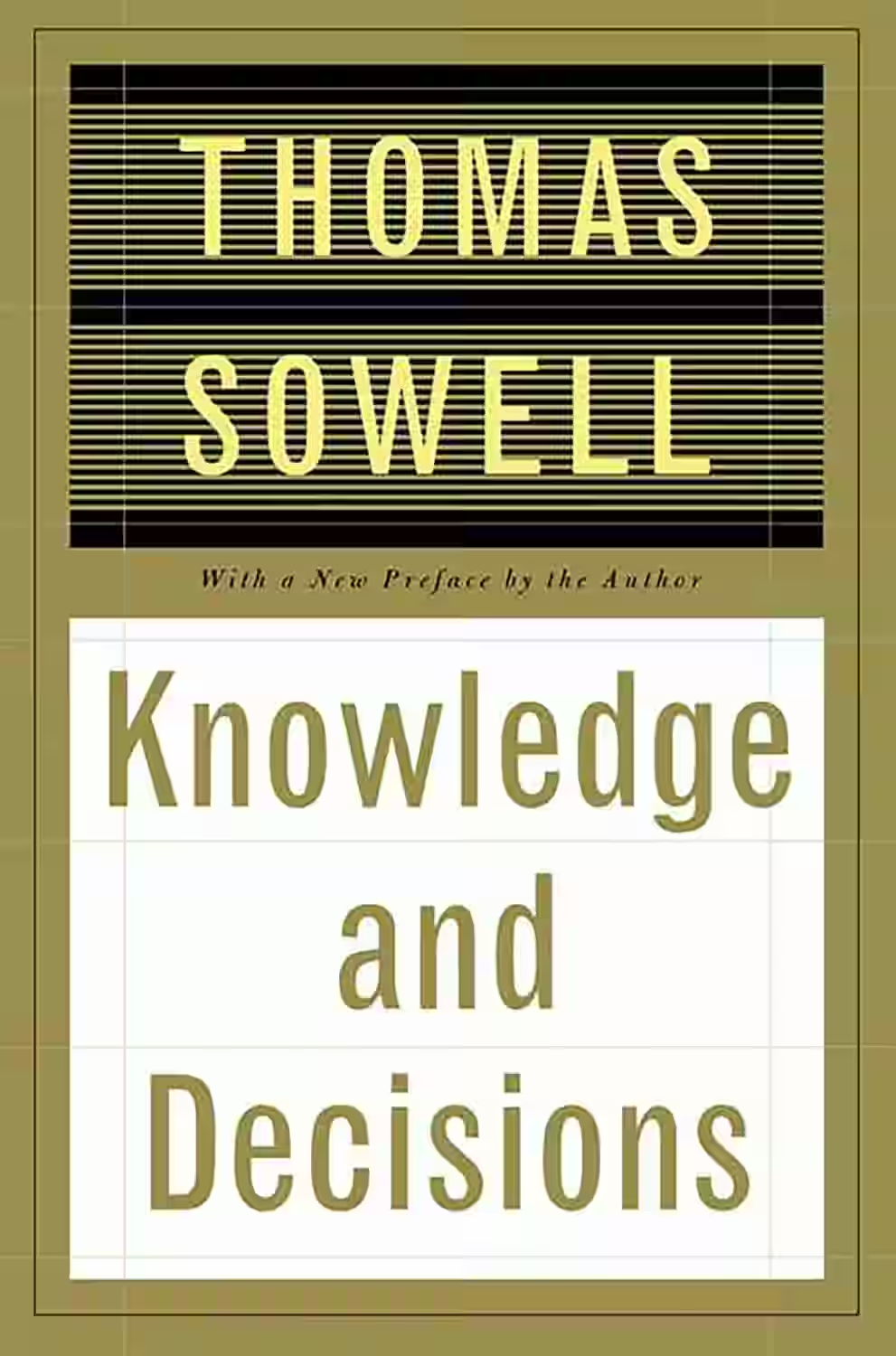
Knowledge and Decisions
Economist and political commentator Thomas Sowell explores how knowledge is distributed and used across different institutions, from markets to governments. He argues that decision-making is most efficient when decentralized and guided by incentives, rather than centralized planning. Sowell highlights how information, incentives, and constraints shape outcomes in society, emphasizing the superiority of systems that allow individuals to act on local knowledge. Rich in economic and philosophical insight, the book critiques technocratic overreach and defends free-market mechanisms. It’s considered one of Sowell’s most intellectually rigorous works, offering a deep framework for understanding how societies function.
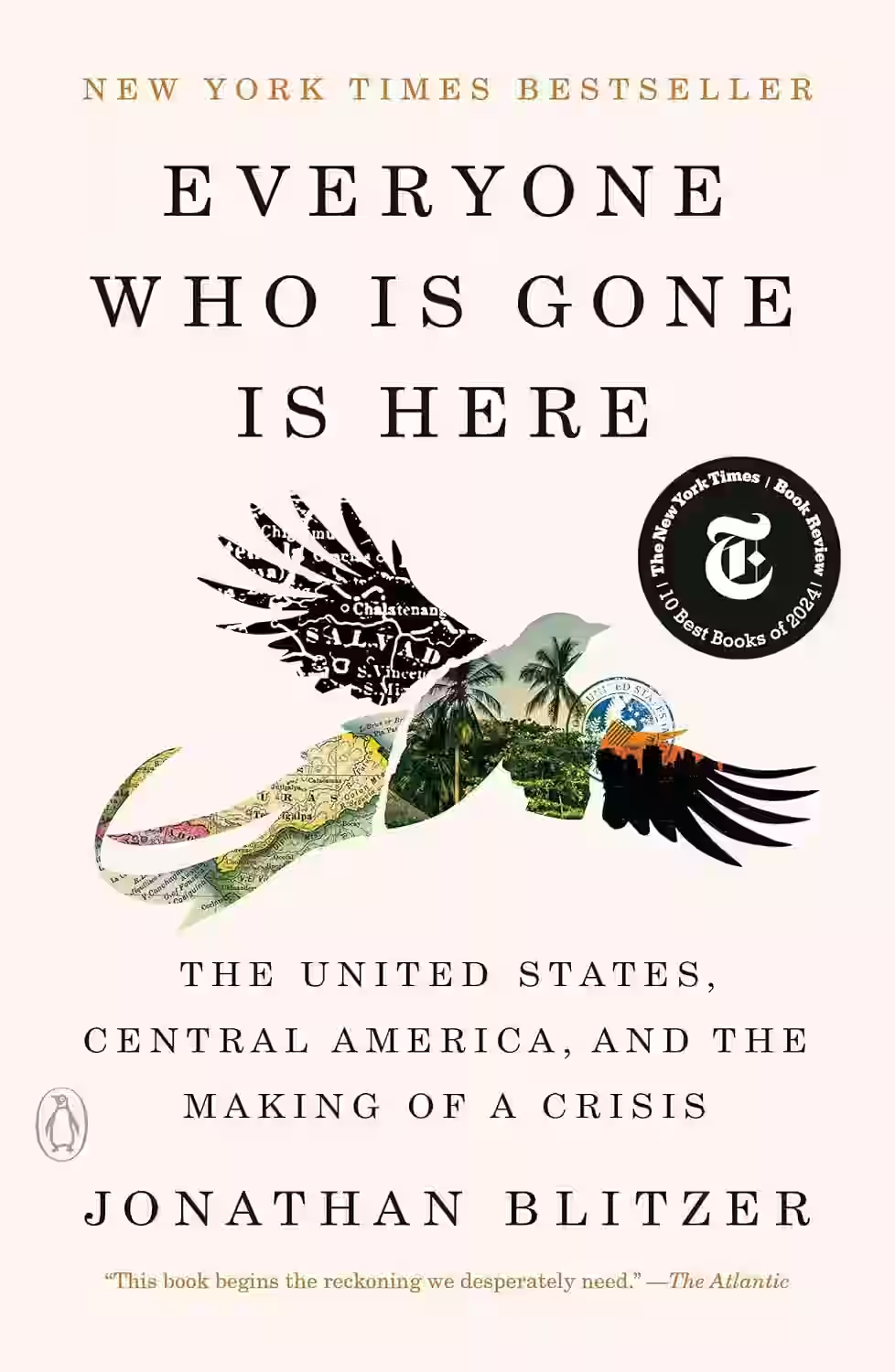
Everyone Who Is Gone Is Here
In Everyone Who Is Gone Is Here, Jonathan Blitzer examines Central American migration to the United States, focusing on El Salvador, Honduras, and Guatemala from the 1970s to the present day. The book weaves together individual narratives and historical analysis to illuminate the complexities of migration, U.S. foreign policy, and the resulting humanitarian crises. Blitzer's work provides a comprehensive look at the factors driving migration and the personal stories behind the headlines, offering a nuanced understanding of a pressing global issue.